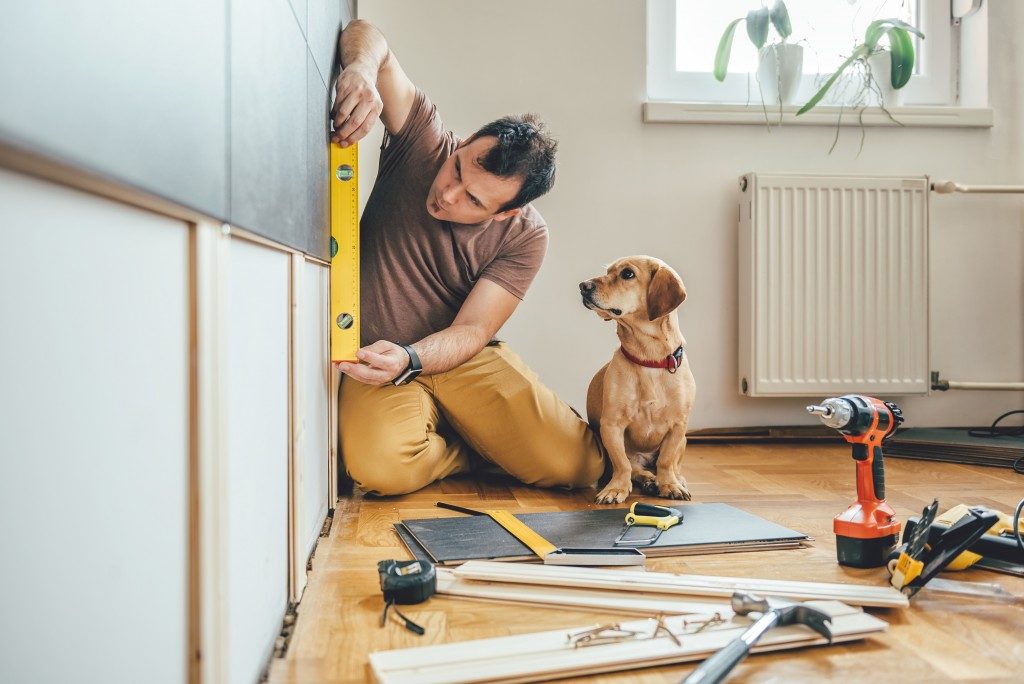- Proper research and understanding of current market trends, financing options, and local real estate laws are essential.
- Look into taking out an affordable home loan to help save money on mortgage repayments.
- Set aside savings for a down payment and closing costs, and consider buying a fixer-upper to get a good deal.
- Purchasing foreclosure properties can save money, but due diligence is needed to fully understand the associated risks.
Buying a house is one of the biggest investments you can make. It is also one of the most expensive purchases, and it’s important to be financially prepared before taking that leap. Fortunately, there are several ways to save money when buying a house.
From shopping for better deals to getting creative with financing options, careful planning, and smart decision-making can help you get the home of your dreams without breaking your budget. This article will discuss some strategies to help you keep costs down while still finding a quality property.
Do Your Research
Proper research is one of the most important aspects of buying a home. Properly researching and understanding the current market trends, financing options, and local real estate laws will help you make smart decisions when investing in property. Knowing what to look for in potential homes, such as hidden problems or excellent features, can save you money in the long run.
An expert real estate agent is a great resource to help you navigate the process swiftly and get the best possible deal on your new home. Their knowledge and experience are invaluable when making one of your life’s largest investments.
See where you can lessen costs.
Here are some ways where you can lessen your expenses when buying a house:
Use an Affordable Home Loan
Taking out an affordable home loan is a great way to save money when purchasing a house. An affordable home loan is essentially an interest rate lower than the current market rate, ensuring homeowners pay less on their mortgage over the long run.
For instance, if the market’s interest rate was at 6%, but someone was to take out an affordable housing loan with an interest rate of 5%, this simple decision could save them a significant amount of money. Additionally, by taking out an affordable loan, homeowners can have extra spending money and much more financial flexibility each month.
Improve Your Credit Score

Improving your credit score is an important factor in securing a loan for a house. It is important to work toward raising your credit score to save money on the amount you will be paying back in interest. Credit scores range between 300 and 850, and the higher your score, the better interest rate you can secure.
One can take several steps to improve your credit score, including staying on top of payments and regularly checking for errors or mistakes on your credit report. Opening new credit accounts also helps improve your score if new debts are managed responsibly and kept low relative to overall debt levels.
Save Towards a Down Payment and Closing Costs

Saving for a down payment and closing costs when buying a house is an important part of home-buying. Your down payment can typically range from three to twenty percent of the purchase price, while closing costs are generally two to five percent. When saving for these costs, creating a budget that allows you time and space to save each month from getting closer to your goals is beneficial.
It is also important to have an emergency fund available in case additional financial needs arise when dealing with the house purchase, such as unexpected repairs or bills associated with the house move. Setting up automatic payments into a savings account or putting money aside in an escrow account can be helpful steps towards saving for these costs, as well as living frugally and managing credit wisely.
Check Out Fixer-Uppers
With the housing market still hot, many homebuyers want a good deal on their new property. One way to find a property in good condition for a lower price is to purchase a ‘fixer-upper.’ This term refers to homes that require some repairs or renovations before they can meet the buyer’s needs and create a comfortable space.
As with any real estate decision, buyers must exercise caution when checking out fixer-uppers – to avoid inadvertently committing to a project which will be too costly or times consuming for them to handle. To save money when evaluating this type of property, buyers should inspect it carefully before investing further resources into professional inspections and assessments. Additionally, buyers should devote adequate time to researching potential pitfalls, such as zoning regulations and building codes associated with designing renovations or repairs.
Consider Buying a Foreclosure Property
Purchasing a foreclosure property can be an excellent way for homebuyers to save money when buying a house. A foreclosure happens when a previous owner has fallen behind on mortgage payments, and the lender decides to take possession of the property and resell it at market value. It’s important to be aware that while they generally cost less than comparable non-distressed properties, disadvantages could also be involved.
Buyers must keep in mind that there is likely going to be significant repair work needed or other issues with the building, such as outstanding back taxes or title problems. Additional costs will also be associated with doing due diligence with inspections and appraisals before closing on a foreclosure sale.
These are just some strategies to save money when buying a house. With the proper planning, research, and smart financial decisions, you can get the home of your dreams without breaking your budget.


